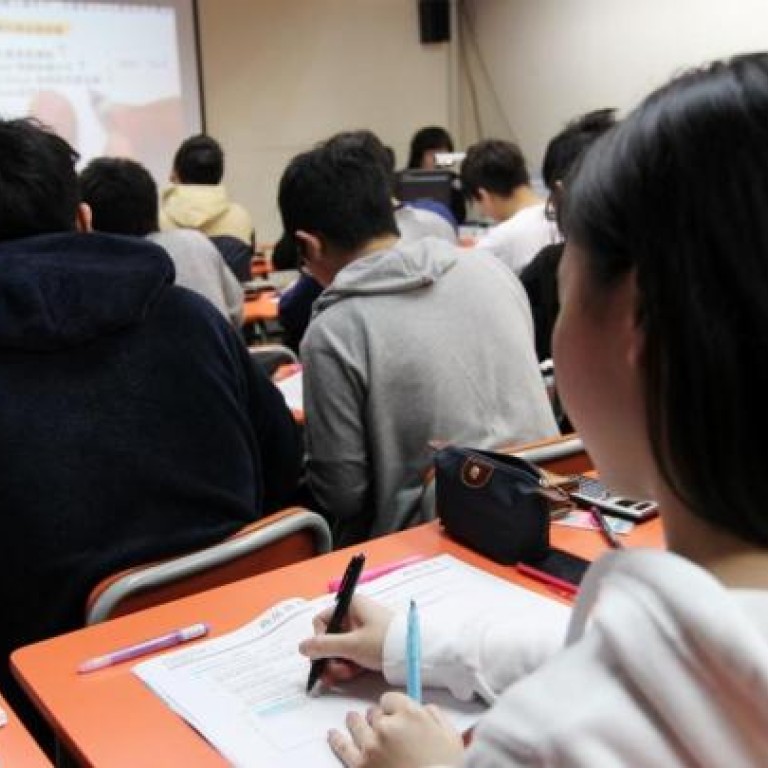
Hong Kong's deadly exam culture
Alastair Sharp sounds a warning over unhealthy fixation with results
Hong Kong is not alone in having a strong exam culture. The rise of "managerialism" - the application of the business model of accountability, efficiency and surveillance to education - has had a profound effect in many countries. Education policy has been affected by globalisation as governments prioritised economic growth.
In schools, monitoring, appraisals and a reliance on quantitative measures collected from student exam results have assumed greater importance than ever. The effect of this emphasis on exams may have dampened creativity, narrowed curriculums and encouraged "teaching to the test".
Many education systems developed from humanistic principles - providing a child with an education in order for him or her to live a fulfilled and happy life was what was important. This has now become secondary to the demands of the market.
Reports in Hong Kong about the continuing rise of the tutorial system are grounds for concern. Professor Mark Bray at the University of Hong Kong found in a survey last year that 54 per cent of Form Three and 72 per cent of Form Six students go for extra tuition after school, finishing so late that there is no room for relaxation, socialising or any other interests.
We should be very concerned about the effects of the exam hothouse we have created.
A recent interview widely reported in the British press refers to a similar situation in England. Richard Harman, chairman of the Boarding Schools' Association, said "good exam scores are important but the hothouse atmosphere and the paranoia that can create can be damaging".
What evidence is there for "damage" occurring? The Nuffield Foundation in Britain has reported rising mental health problems among young people, with a doubling in the numbers reported as clinically depressed. The British helpline ChildLine reported a 59 per cent increase in the numbers of self-harmers in 2010-2011, compared with the previous year.
A report by the Britain-based Samaritans suicide prevention service found that 70 per cent of those self-harming, with accompanying suicidal thoughts, did this because of worries about schoolwork, a much higher figure than other stated problems (such as relationships, bullying and parental issues).
In Hong Kong, there has been less study of mental health problems in the young. However, recent research has revealed very worrying facts.
A 2012 study by Daniel Shek and Lu Yu at the Polytechnic University found almost a third of 3,328 students questioned reported self-harming and more than 13 per cent had suicidal thoughts.
Suicide is the leading cause of death among Hong Kong youth. A report in the journal in 2006, by Margaret Lee and her colleagues at the Chinese University, found that suicidal thoughts among adolescents were strongly associated with test anxiety and parental dissatisfaction with academic performance. A further study by Lee of 3,383 students in 2009 also found strong correlations between suicidal feelings and school failure.
Of course, issues of mental health, self-harming and suicidal behaviour are not simply explained, nor do they have single causes. So it is not reasonable to simply state that the stresses posed by high-stakes examinations are to blame. However, there is mounting evidence worldwide that our increasingly competitive school system is a growing contributive factor.
That is cause for concern. We seem to be losing track of what education is about.
As Harman pointed out, "instead of focusing on results, schools and parents must help children handle failure, develop different strengths and become resilient people who can make relationships with others, because that is what brings proper happiness in lifelong terms".
